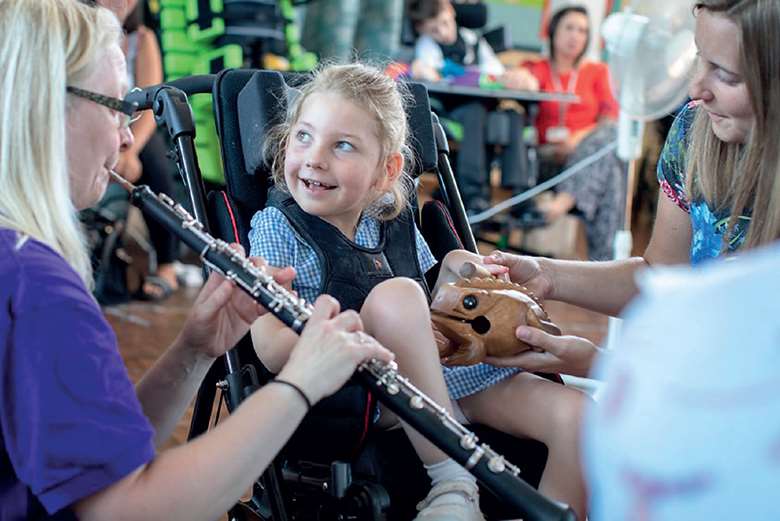Celebrating musical inclusion: City of Birmingham Symphony Orchestra
Stephanie Walsh
Saturday, December 1, 2018
Stephanie Walsh, CBSO schools officer, tells us about the organisation's latest conference. The day saw a number of prominent organisations take the time to reflect on some of the great work that is being done throughout the country to make music more accessible.

Mat Beckett, River Rea Films
The City of Birmingham Symphony Orchestra (CBSO) recently welcomed musicians, practitioners, teachers and students to the CBSO Centre for a day that explored and celebrated good practice in inclusive music-making (5 November). The primary focus was on work delivered by professional musicians for children and young people living with disabilities. There was also a keynote speech from Lloyd Coleman, assistant music director of the Paraorchestra.
The conference featured inspirational presentations and discussions from organisations undertaking innovative work in this field from across the UK. This included the CBSO, Live Music Now, Orchestras Live and Mac Makes Music, with closing comments from Matt Griffiths, chief executive of Youth Music. Presentations explored the outcomes, challenges and benefits of different approaches, and included a lively discussion forum that enabled musicians to debate and share their own experiences of working within SEND settings.
‘I was pleased with the open and honest conversations taking place throughout the day,’ said Coleman, ‘I felt particularly enlightened listening to the CBSO musicians talk about the work they have been delivering in West Midlands special schools.’
This programme of work, supported over the last two years by Youth Music, has seen groups of CBSO musicians become resident in three special schools, providing on-going creative music projects for pupils with learning disabilities. The outcomes of this project have been significant for the young people involved, not only supporting their personal and social development, but also increasing engagement with family members through regular sharing and performance events.
Coleman expressed the hope that ‘the day has opened some people's eyes. This is a long journey, both in music education and within professional performing ensembles, and I hope that my session helped the delegates understand that musically inclusive practice is an amazing opportunity to broaden the scope on what kind of music we play, how we play it, where – and even when – we play it.’
Griffiths provided delegates with some thought-provoking closing comments, surmising that inclusive education is getting higher on the agenda, but we need to quicken the pace of change and this change has to be systemic and systematic. It's a question of mind-set rather than money, and if all members of an organisation work together – musicians, administrative teams, senior leaders and boards – there is no reason why we cannot elicit this change to create genuine inclusive music practice; not just for young people, but for everyone.

